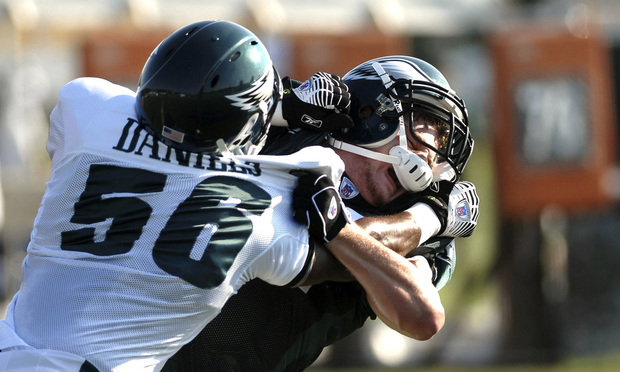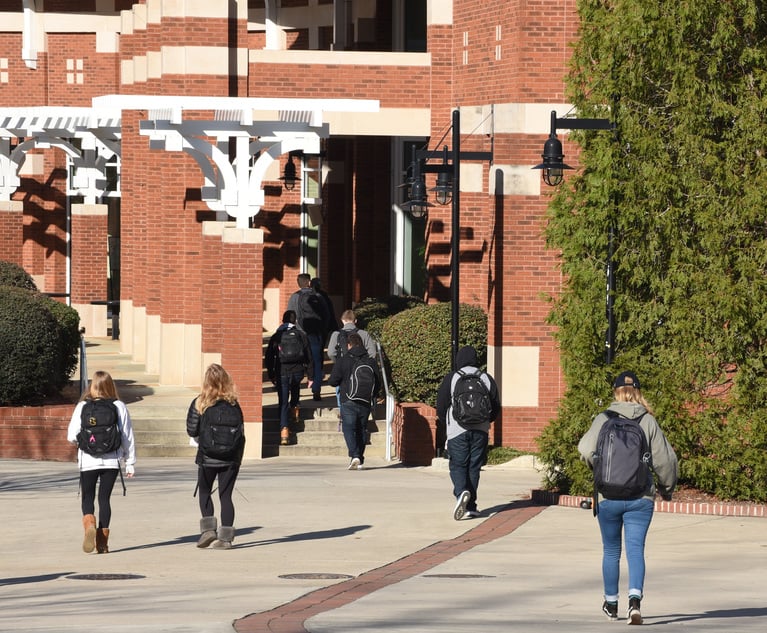A decision to dismiss all but one attorney from the NFL concussion litigation’s class counsel leadership team has left some lawyers expressing concern that they’ve lost key voices in the class action just as critical issues have begun to arise in the settlement implementation.
On May 24, U.S. District Judge Anita Brody of the Eastern District of Pennsylvania entered an order that dismissed all of the lawyers who had been serving in co- and sub-class counsel positions, and then reappointed Seeger Weiss attorney Christopher Seeger as the sole class counsel. Brody’s two-page order said class counsel had done “an excellent job” achieving the uncapped settlement, which is estimated to top $1 billion, but added that attorneys needed to assist individual clients with the claims administration process and that there is a “need to conserve the common benefit fund.”


 Philadelphia Eagles linebacker Tank Daniels, left, and rookie tight end Brent Celek, right, at Lehigh University on Aug. 1, 2007, in Bethlehem, Pennsylvania. (Photo: Bradley C Bower/Bloomberg News)
Philadelphia Eagles linebacker Tank Daniels, left, and rookie tight end Brent Celek, right, at Lehigh University on Aug. 1, 2007, in Bethlehem, Pennsylvania. (Photo: Bradley C Bower/Bloomberg News)





